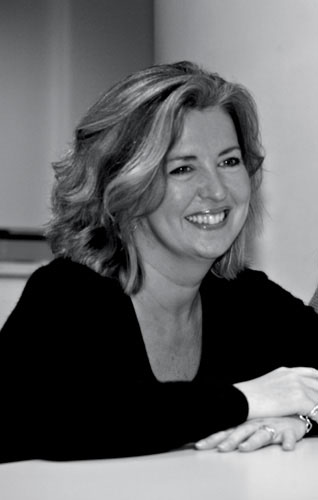It pays to be the good guys

Sustainability and corporate responsibility are the order of the day, and design groups can do their bit to spread the message, says Gill Parker
Whatever your views on the subject, the Green debate will have transcended your personal and professional life in design. Sustainability issues have never enjoyed a higher and more fashionable profile, and there is much evidence to suggest that we are increasingly choosing to alter our behaviour, both in the design world and beyond.
The best ‘new’ business initiatives are swiftly adopted by the majority and superseded by the next best thing – the better the idea, the quicker it is adopted and subsequently dropped. Those who thought this would be true of the corporate social responsibility phenomenon, however, have been proven wrong.
There is enormous demand for CSR in both the consumer and business-to-business sectors. The reason for this is that CSR penetrates society at a deep level. The superficial ‘fad’ phase has passed and business has realised that it cannot selfishly pursue financial profit without considering the impact on our immediate environment.
So what can design consultancies do? The Green debate is only one, albeit vital, element. As designers and architects we are in a strong position to inform and guide clients on their workplace environments. We can look at our own businesses and revisit our (often ingrained) routines and traditions in our own offices.
Empowering and incentivising employees to take responsibility for their working environment can improve staff retention and increase desirability as an employer. Last year, I commissioned an independent research paper by BMRB to look at Green initiatives in the workplace. It found that 61 per cent of office workers nationally would opt for a company that took steps to reduce its impact on the environment. In London, this figure increases to 70 per cent.
Another significant element of CSR is corporate community involvement, which has the potential to be the most visible part of a company’s programme although it often plays second fiddle to Green initiatives.
Most design consultancies are classified as small-to-medium enterprises and so do not have the resources to make large cash donations to charities. But writing a cheque is not the only way to support a charity.
As an industry we are not financial Goliaths, but when it comes to CSR we can still be extremely effective, using our most valuable resource of all – creativity.
Designers are instinctive listeners, engaging with ease and prepared to accept and embrace the disadvantaged elements of society. It is here that we can leverage our skills and become involved with charities that support a range of causes.
There are numerous initiatives that we can become involved in that are of little or no cost to business/ payroll giving; loaning out meeting space; volunteer days; advertising a charity on your website; a charity leaflet/ appeal in your regular business or customer mailings; putting a message on your franking machine; and using e-mail footers. All this can be achieved without mentioning ‘pro bono’.
BDG Workfutures has been working with the Whitechapel Mission, a charity that supports the homeless, for several years. During that period we have been involved in a number of activities, from serving breakfast to half marathons. The benefit to BDG Workfutures as a business, in terms of team building and profile, is equal to the benefit the Whitechapel Mission has reaped from our support.
A strong CSR programme is good for business. After all, as WPP chief executive Sir Martin Sorrell once said, a CSR programme will only be maintained if it can be proven to be in the interests of a company in terms of long-term profitability, and not merely for the ‘greater good’.
However, the fact is that it can be good for everyone – customers, supply chain, employees, business, local community, the environment and the world. What greater reason do you need?
Gill Parker is joint managing director of BDG Workfutures
Green initiatives for the design studio
• Locating copiers, printers and faxes centrally in shared service centres will encourage people to think twice about how necessary the print is
• Recycling is very important, but investing in recycling bins is the easy part – convincing people to use them is much harder. Factor them into the design to give them credence and remove personal waste bins
• Consider refreshments that are available in the office – go fairtrade and lose the paper cups. If you have a vending machine, review its content from both an ethical and health perspective
-
Post a comment




